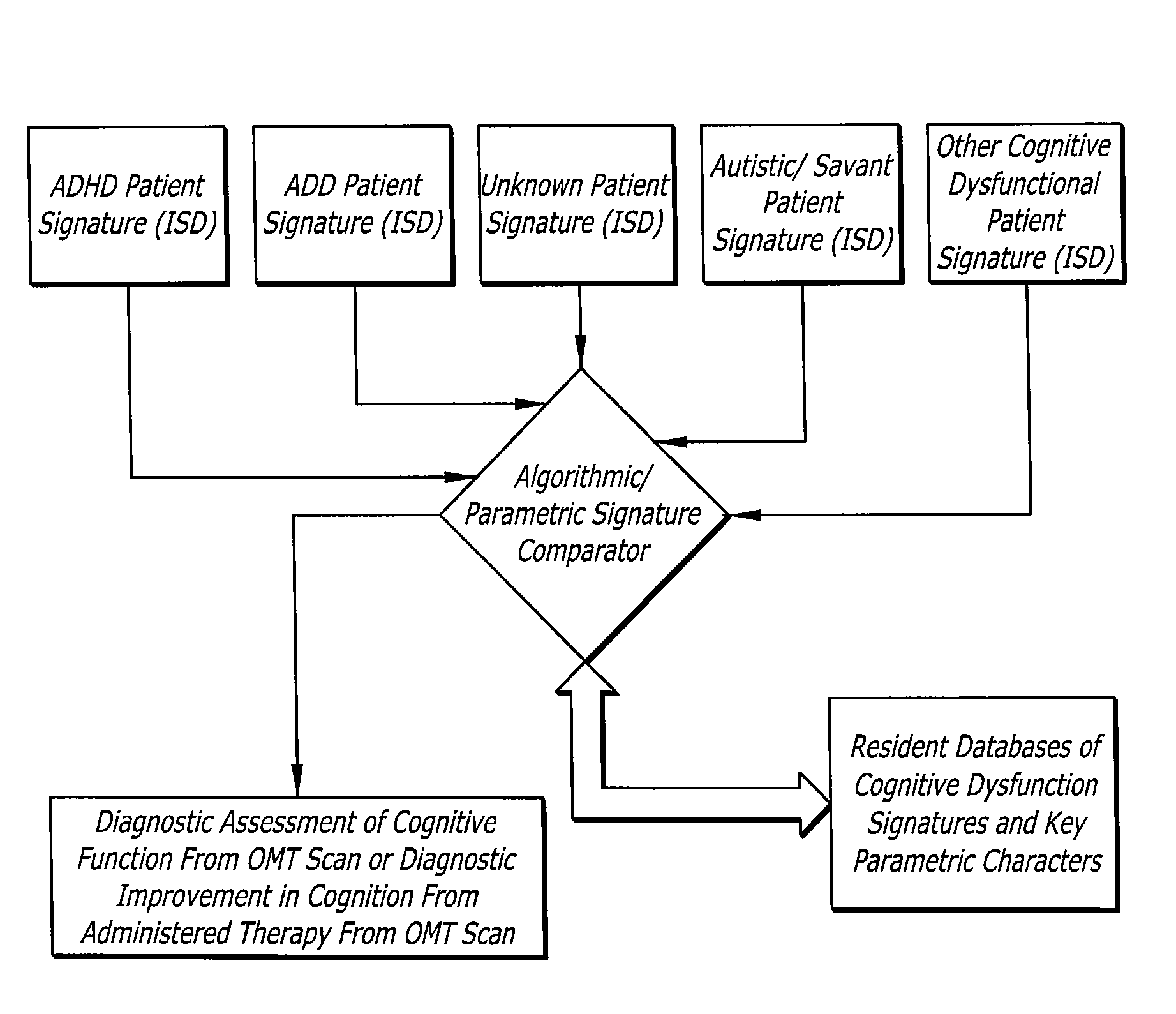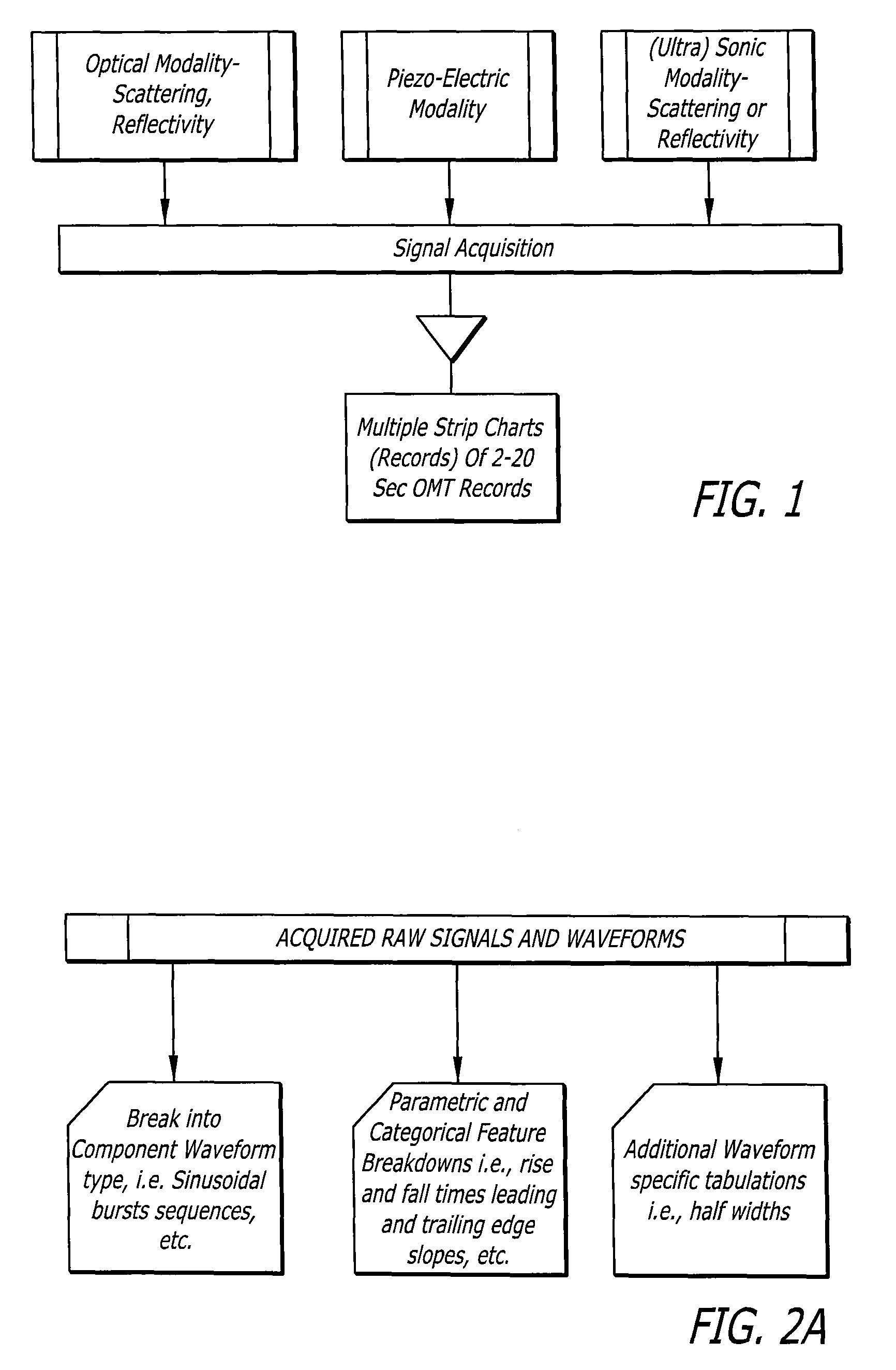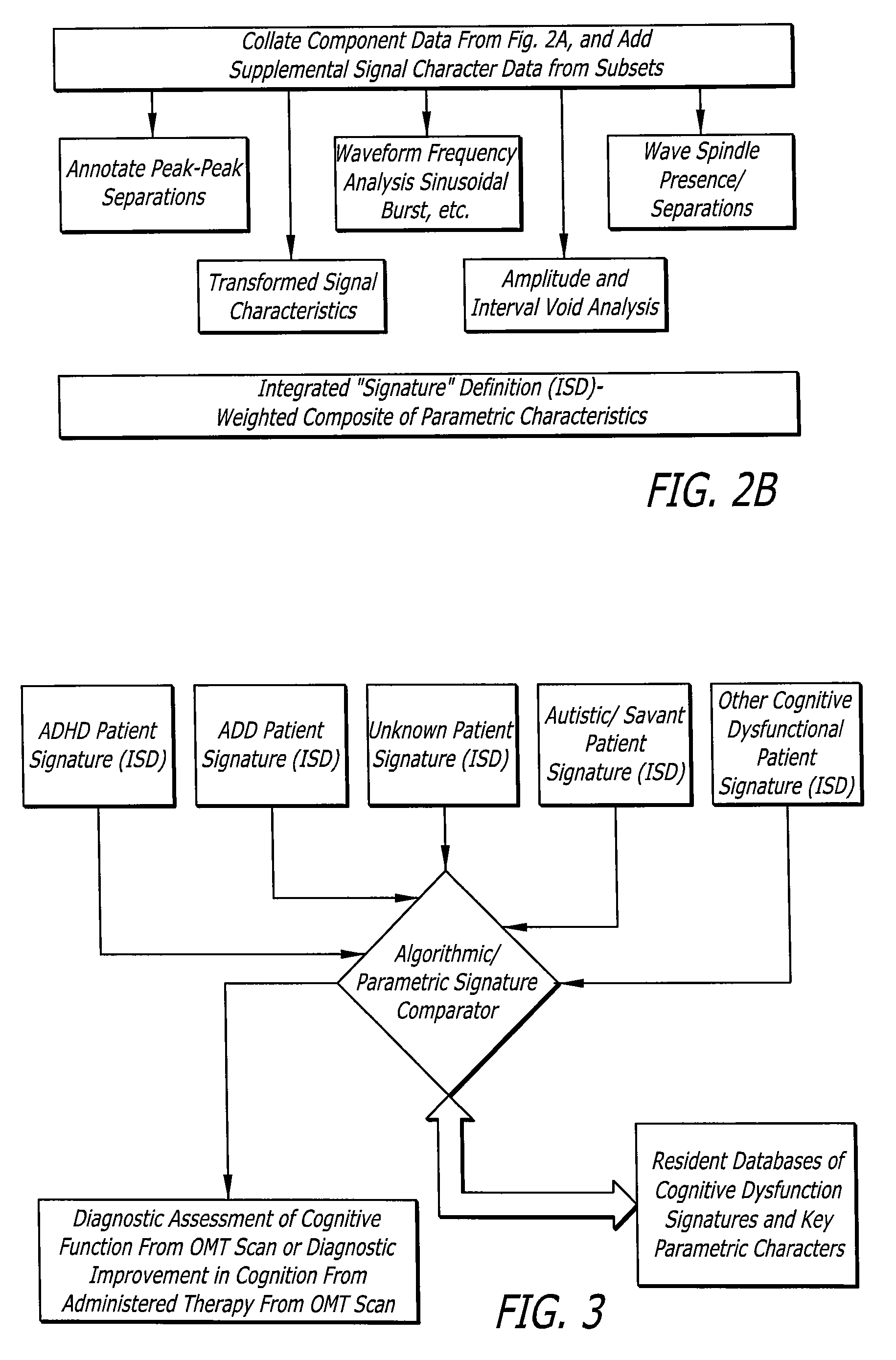Methods and techniques to measure, map and correlate ocular micro-movement and ocular micro-tremor (OMT) signals with cognitive processing capabilities in ADD/ADHD individuals
a technology of optical micro-tremor and cognitive processing, applied in the field of system and method for correlating optical micro-tremor signals with cognitive dysfunction, can solve the problems of limited verbal reporting ability concerning the whole scene, inability to accurately describe the scene, and image in our mind not necessarily corresponding with the actual photograph of the scene or the physical data. , to achieve the effect of favorable results
- Summary
- Abstract
- Description
- Claims
- Application Information
AI Technical Summary
Benefits of technology
Problems solved by technology
Method used
Image
Examples
Embodiment Construction
[0036]Ocular micro-tremor, or OMT, has been classically described as a very small motion of the eye, which is constant, typically at an average frequency of about 80 Hz, and varying in amplitude from 150 nm to 2500 nm. It occurs in all humans, and has been related to the activity produced within the brainstem region (lower reptilian brain which sits on the top of the spinal column). It was first reported on by Adler et al. in 1934 (Adler, F. H. M., Fleigelman, Maurice, A B, (1034), “Influence of Fixation on the Visual Acuity,”Archives of Ophthalmology, 12: 475-483.) Since it only ceases at death, the measurement of the tremor has been a useful tool in evaluating people under anesthesia, and in a coma (see for Example, references 1-3). Additionally, having its origin within the brainstem, abnormalities in ocular micro-tremor patterns have been noted in several neuromuscular disorders such as Parkinsons Disease and Multiple Sclerosis (see, e.g., Bolger, C., et al., “Ocular micro-tremo...
PUM
 Login to View More
Login to View More Abstract
Description
Claims
Application Information
 Login to View More
Login to View More - R&D
- Intellectual Property
- Life Sciences
- Materials
- Tech Scout
- Unparalleled Data Quality
- Higher Quality Content
- 60% Fewer Hallucinations
Browse by: Latest US Patents, China's latest patents, Technical Efficacy Thesaurus, Application Domain, Technology Topic, Popular Technical Reports.
© 2025 PatSnap. All rights reserved.Legal|Privacy policy|Modern Slavery Act Transparency Statement|Sitemap|About US| Contact US: help@patsnap.com



